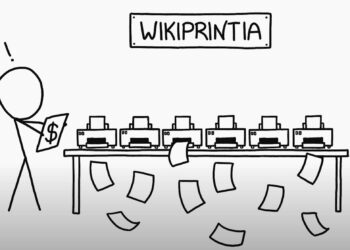
It seems we’re in the era of petitions, so much so that the White House has a site where citizens can petition the government to take up various issues. And while these cater to an emotional need for participation, increasingly this emotional connection seems superficial, transitory, and ineffective, and the responses are often strings of easy platitudes.
In light of yet another initiative to gather signatures with the San Francisco Declaration on Research Assessment (DORA), it’s worth contemplating the somewhat self-canceling nature of these sites, which purport to reflect involvement but may actually foster laziness and disconnectedness.
Populism has never been easier — just read a few sentences, click a button, maybe enter a few lines of information, and you’re done. A form letter may go off to an elected representative. A vote may be cast toward meeting a quota, which, when achieved, will trigger carefully crafted PR messages to be written in response. Best of all, you can do it from the comfort of your office, living room, or smartphone. Why bother to rally the Million Man March in Washington, DC, or sleep in a tent night after night like the Occupy protesters when you can just click on a petition on whitehouse.gov? Why actually do something in the physical world, miss work, be uncomfortable, and make a legitimate personal sacrifice when you can check off involvement by ticking a box in an online form or pressing “Like” as an online petition floats by on Facebook?
One of the more well-known recent examples of a place to express unity with others in academia was Tim Gowers’ petition named, “The Cost of Knowledge,” which has attracted about 14,000 signatures. However, making anyone accountable for having signed it is next to impossible, as there is no date of signature or even one showing when the petition opened. You cannot know as of what date the commitment to not review, not publish, or not do editorial work was made. This lack of accountability is a fairly common aspect of online signature sites.
Online petitions take little time to join, have low accountability, and offer little information about who committed to do what and when.
The DORA site is equally unclear in how it will hold its signatories accountable. This matters, because some of the signatories are known to be ferociously interested in their impact factors, while at the same time publicly claiming on DORA that they don’t matter. Janus-like behavior is not uncommon when it comes to petitions. I may sign a petition to eliminate sugary snacks from school vending machines, but personally buy Mike & Ike‘s at work whenever I want. Petitions do not constrain hypocrisy.
Petitions can be powerful tools for drawing attention to nascent causes, and that’s probably their greatest benefit to those deploying them. The media likes petitions. The reporting is easy — there are numbers, there are big names often to throw around, and there is a sense of grassroots dissatisfaction. The more difficult reporting — accountability, conflicts of interest, effectiveness — usually is not done, especially in this age of gutted professional journalism enterprises.
A petition isn’t necessary for success, however. Important bodies have been founded and sustained without populism, including the International Committee of Medical Journal Editors (ICMJE) and the Council on Publication Ethics (COPE). It might actually be more effective for a small group of thought leaders to promulgate carefully crafted policies and strictures than to have a large, unaccountable group signing onto vague or unenforceable statements. There is a myth here to examine — that populism is superior to expertise.
Some of the signatories are activists in this space, doing things I believe to be more meaningful than making grand and amorphous statements or signing on to such. Individuals like Heather Piwowar and Jason Priem of ImpactStory and Euan Adie of Altmetrics LLC are attempting to crack the puzzle of what might lie beyond the impact factor. So far, they have struggled to find anything that’s better, less opaque, or easier to scale, but they are putting their skin in the game and creating some seductive interfaces, even if they still have layers of sophistication yet to plumb. That’s commendable, and takes more chutzpah than just ramping up an online petition site or writing out a long set of mixed grievances.
Did DORA need to add the element of signatories? Perhaps, to draw media attention. Otherwise, adding a petition component seems to be thin gruel. The real transformation will come when someone creates a tool that measures academic output as effectively for promotion and tenure as the impact factor measures prestige for journals.
Discussion
1 Thought on "Populism vs. Activism — Encountering Limitations in the Age of Online Petitions and Signatures"
We are now living in an era where industrial or political action is being met by physical and legal force. It is no longer viewed as a legitimate expression of opinion but as a criminal activity. People are being force to find other alternatives to the street marches or sit ins etc.
Mostly, the spirit of protest is being killed by red tape. Having to apply to the authorities for permission to hold an event, giving details about date, time, place etc.



